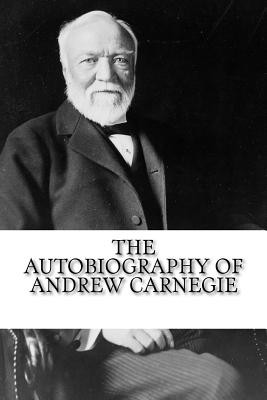
- We will send in 10–14 business days.
- Author: Andrew Carnegie
- Publisher: CreateSpace Independent Publishing Platform
- ISBN-10: 1724395998
- ISBN-13: 9781724395993
- Format: 15.2 x 22.9 x 0.8 cm, minkšti viršeliai
- Language: English
- SAVE -10% with code: EXTRA
Reviews
Description
Andrew Carnegie was a Scottish-American industrialist, business magnate, and philanthropist. Carnegie led the expansion of the American steel industry in the late 19th century and is often identified as one of the richest people (and richest Americans). He became a leading philanthropist in the United States and in the British Empire. During the last 18 years of his life, he gave away about $350 million to charities, foundations, and universities-almost 90 percent of his fortune. His 1889 article proclaiming "The Gospel of Wealth" called on the rich to use their wealth to improve society, and stimulated a wave of philanthropy. Carnegie was born in Dunfermline, Scotland, and emigrated to the United States with his parents in 1848. Carnegie started work as a telegrapher, and by the 1860s had investments in railroads, railroad sleeping cars, bridges, and oil derricks. He accumulated further wealth as a bond salesman, raising money for American enterprise in Europe. He built Pittsburgh's Carnegie Steel Company, which he sold to J. P. Morgan in 1901 for $480 million. It became the U.S. Steel Corporation. After selling Carnegie Steel, he surpassed John D. Rockefeller as the richest American for the next couple of years. Carnegie devoted the remainder of his life to large-scale philanthropy, with special emphasis on local libraries, world peace, education, and scientific research. With the fortune he made from business, he built Carnegie Hall in New York, NY, and the Peace Palace and founded the Carnegie Corporation of New York, Carnegie Endowment for International Peace, Carnegie Institution for Science, Carnegie Trust for the Universities of Scotland, Carnegie Hero Fund, Carnegie Mellon University, and the Carnegie Museums of Pittsburgh, among others.
- Author: Andrew Carnegie
- Publisher: CreateSpace Independent Publishing Platform
- ISBN-10: 1724395998
- ISBN-13: 9781724395993
- Format: 15.2 x 22.9 x 0.8 cm, minkšti viršeliai
- Language: English English
Andrew Carnegie was a Scottish-American industrialist, business magnate, and philanthropist. Carnegie led the expansion of the American steel industry in the late 19th century and is often identified as one of the richest people (and richest Americans). He became a leading philanthropist in the United States and in the British Empire. During the last 18 years of his life, he gave away about $350 million to charities, foundations, and universities-almost 90 percent of his fortune. His 1889 article proclaiming "The Gospel of Wealth" called on the rich to use their wealth to improve society, and stimulated a wave of philanthropy. Carnegie was born in Dunfermline, Scotland, and emigrated to the United States with his parents in 1848. Carnegie started work as a telegrapher, and by the 1860s had investments in railroads, railroad sleeping cars, bridges, and oil derricks. He accumulated further wealth as a bond salesman, raising money for American enterprise in Europe. He built Pittsburgh's Carnegie Steel Company, which he sold to J. P. Morgan in 1901 for $480 million. It became the U.S. Steel Corporation. After selling Carnegie Steel, he surpassed John D. Rockefeller as the richest American for the next couple of years. Carnegie devoted the remainder of his life to large-scale philanthropy, with special emphasis on local libraries, world peace, education, and scientific research. With the fortune he made from business, he built Carnegie Hall in New York, NY, and the Peace Palace and founded the Carnegie Corporation of New York, Carnegie Endowment for International Peace, Carnegie Institution for Science, Carnegie Trust for the Universities of Scotland, Carnegie Hero Fund, Carnegie Mellon University, and the Carnegie Museums of Pittsburgh, among others.


Reviews